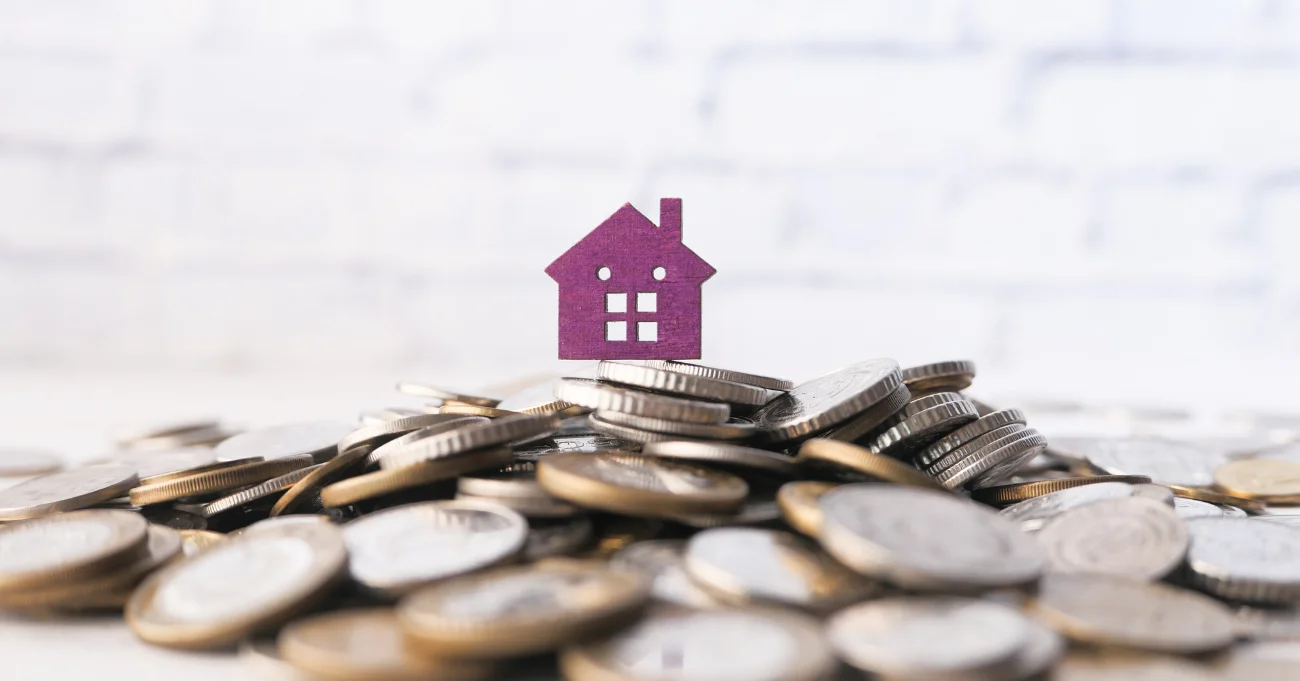As of June 1st, 2025, self-employed mortgage rates remain slightly higher than conventional loans, but the gap has narrowed significantly compared to previous years. This shift reflects a more favorable lending environment for entrepreneurs and independent professionals.
With the right preparation and insight into today’s market conditions, self-employed borrowers are well-positioned to secure excellent financing options and take advantage of competitive rates in today’s lending environment.
Current Market Overview: June 2025
According to the latest market data as of June 1st, 2025, conventional mortgage rates are showing these trends:
- 30-Year Fixed Rate: 6.93% (National Average: 6.94%)
- 15-Year Fixed Rate: 6.11%
- FHA 30-Year Fixed: 6.68%
- VA 30-Year Fixed: 6.66%
For self-employed borrowers, rates typically run 0.25% to 0.75% higher than these conventional rates, depending on the loan program and individual qualifications. However, this varies by lender. This means self-employed mortgage rates currently range from approximately 7.18% to 7.68% for 30-year fixed loans.
If you want to know the exact self-employed mortgage rate for your situation, click here to schedule an appointment with one of our loan specialists.
Why Self-Employed Mortgage Rates Can Be Higher
Self-employed mortgage rates carry a slight premium for several reasons:
Risk Assessment: Lenders view self-employment as higher risk due to income variability and lack of traditional employment verification.
Documentation Complexity: Alternative loan programs require additional underwriting time and specialized expertise, which lenders price into their rates.
Loan Type: Non-QM (Non-Qualified Mortgage) loans, which most self-employed borrowers use, typically carry higher rates than conventional conforming loans.
Market Conditions: The specialized nature of self-employed lending means fewer lenders compete in this space, leading to less rate compression.
Self-Employed Mortgage Rate Options
Several loan programs serve self-employed borrowers, each with different rate structures:
Bank Statement Loans
Bank statement loans currently offer some of the most competitive self-employed mortgage rates, typically 0.25% to 0.50% above conventional rates. These loans use bank deposits to verify income rather than tax returns.
P&L (Profit & Loss) Loans
P&L loans often provide competitive rates for established businesses with clean financial statements. Rates typically run 0.375% to 0.625% above conventional mortgages.
DSCR (Debt Service Coverage Ratio) Loans
For real estate investors, DSCR loans focus on property cash flow rather than personal income. Current DSCR rates range from 7.25% to 8.00% for investment properties.

Factors Affecting Your Self-Employed Mortgage Rate
Your specific rate will depend on several key factors:
Credit Score: Higher credit scores can help offset the self-employment premium. Scores above 740 typically qualify for the best available self-employed mortgage rates.
Down Payment: Larger down payments (20% or more) often result in better rates and terms.
Business Stability: Longer business history and consistent income patterns can improve your rate offers.
Cash Reserves: Strong cash reserves demonstrate financial stability and can lead to better pricing.
Property Type: Primary residences typically receive better rates than investment properties or second homes.
Current Market Trends Affecting Self-Employed Borrowers
Several trends are impacting self-employed mortgage rates in 2025:
Rate Stabilization: After significant volatility in recent years, mortgage rates have stabilized, benefiting self-employed borrowers who need time to prepare applications.
Increased Competition: More lenders are entering the non-QM space, creating downward pressure on self-employed mortgage rates.
Regulatory Clarity: Clearer guidelines from regulators have made lenders more comfortable with alternative documentation loans.
Economic Conditions: The Federal Reserve’s current monetary policy has created a more predictable rate environment for all borrowers.
Regional Variations in Self-Employed Mortgage Rates
Self-employed mortgage rates can vary by location due to several factors:
State Regulations: Some states have more favorable lending environments that can result in better rates.
Local Competition: Markets with more alternative lenders may offer more competitive self-employed mortgage rates.
Property Values: High-value markets often have more specialized lenders serving self-employed borrowers.
Economic Conditions: Local economic strength can influence lender appetite and pricing for self-employed loans.
Strategies to Secure Better Self-Employed Mortgage Rates
Several tactics can help you obtain the most competitive rates:
Improve Your Credit Profile: Focus on paying down debts and maintaining excellent payment history before applying.
Organize Financial Documentation: Clean, well-organized financial records can lead to faster approvals and better rates.
Shop Multiple Lenders: Self-employed mortgage rates vary significantly between lenders, making comparison shopping essential.
Consider Different Loan Programs: The best rate might come from a program you hadn’t initially considered.
Time Your Application: Market conditions can change quickly, so monitor rates and apply when conditions are favorable.
The Impact of Down Payment on Self-Employed Mortgage Rates
Down payment size significantly affects self-employed mortgage rates:
10-15% Down: Expect rates at the higher end of the range, with additional mortgage insurance costs. Some lenders offer up to 90% LTV on certain loan types pending additional qualification requirements.
20% Down: Qualifies for better rates and eliminates private mortgage insurance.
25%+ Down: Often results in the most competitive self-employed mortgage rates available.
Comparing Self-Employed Mortgage Rates to Conventional Loans
While self-employed mortgage rates are higher than conventional loans, the gap has narrowed considerably:
Historical Gap: Previously, self-employed borrowers paid 1-2% more than conventional rates.
Current Market: The premium has decreased to 0.25-0.75% in most cases.
Future Outlook: Continued competition and regulatory clarity may further reduce the self-employment rate premium.

Rate Locks and Self-Employed Borrowers
Self-employed applications often take longer to process, making rate locks particularly important:
Extended Lock Periods: Many lenders offer 60-90 day locks for self-employed applications.
Lock Extensions: Understand your lender’s policies for extending locks if underwriting takes longer than expected.
Float-Down Options: Some lenders offer the ability to capture lower rates if they improve during your lock period.
Refinancing Considerations for Self-Employed Borrowers
Current market conditions may present refinancing opportunities:
Rate Improvement: If you obtained financing when self-employed mortgage rates were higher, refinancing might make sense.
Loan Program Switching: You might qualify for a different program type with better rates as your business matures.
Cash-Out Refinancing: Business owners may benefit from accessing equity for business expansion or debt consolidation.
FAQS: Self-Employed Mortgage Rates
Q: How much higher are self-employed mortgage rates compared to conventional loans? A: As of June 2025, self-employed mortgage rates typically run 0.25% to 0.75% higher than conventional rates. This means while conventional 30-year fixed rates average 6.93%, self-employed borrowers can expect rates between 7.18% and 7.68%.
Q: Which loan program offers the lowest self-employed mortgage rates? A: Bank statement loans often provide the most competitive self-employed mortgage rates, typically only 0.25% to 0.50% above conventional rates, especially for borrowers with strong credit and substantial down payments.
Q: Can I get the same rate as a W-2 employee if I’m self-employed? A: While rare, some self-employed borrowers with exceptional credit (750+), large down payments (25%+), and very stable businesses may qualify for rates close to conventional loan pricing.
Q: Do self-employed mortgage rates vary by state? A: Yes, self-employed mortgage rates can vary by location due to state regulations, local competition among lenders, and regional economic conditions. Some states with more favorable lending environments may offer better rates.
Q: How long can I lock my self-employed mortgage rate? A: Most lenders offer 60-90 day rate locks for self-employed applications, with some providing extensions if underwriting takes longer than expected. This is longer than typical 30-45 day locks for conventional loans.
Q: Will my self-employed mortgage rate improve if I refinance later? A: Potentially yes. As your business becomes more established and your financial profile strengthens, you may qualify for better rates through refinancing. Market conditions also change over time.
Q: Do I need a higher down payment to get better self-employed mortgage rates? A: Yes, larger down payments significantly impact self-employed mortgage rates. While 10-15% down is possible, putting down 20% or more typically results in notably better rates and eliminates mortgage insurance.
Q: How do DSCR loan rates compare to other self-employed mortgage rates? A: DSCR loans for investment properties typically have higher rates (7.25% to 8.00%) since they’re based on property cash flow rather than personal income, and investment properties inherently carry more risk than primary residences.
The Bottom Line
Self-employed mortgage rates as of June 1st, 2025, remain competitive despite being slightly higher than conventional loans. With 30-year fixed rates for self-employed borrowers typically ranging from 7.18% to 7.68%, the premium for alternative documentation has decreased significantly compared to historical standards.
The key to securing the best possible self-employed mortgage rate lies in preparation, comparison shopping, and working with lenders who specialize in non-traditional borrowers. Strong credit, substantial down payments, and well-organized financial documentation can help you secure rates closer to the lower end of the range.
At Defy Mortgage, we specialize in helping self-employed professionals secure competitive rates through our various alternative loan programs. Our expertise in bank statement loans, P&L loans, and DSCR financing ensures you’ll receive the best possible terms for your unique situation.
Ready to explore your self-employed mortgage options and secure a competitive rate? Schedule an appointment with our specialized lending team today to discuss how we can help you achieve your homeownership goals with favorable financing terms.




